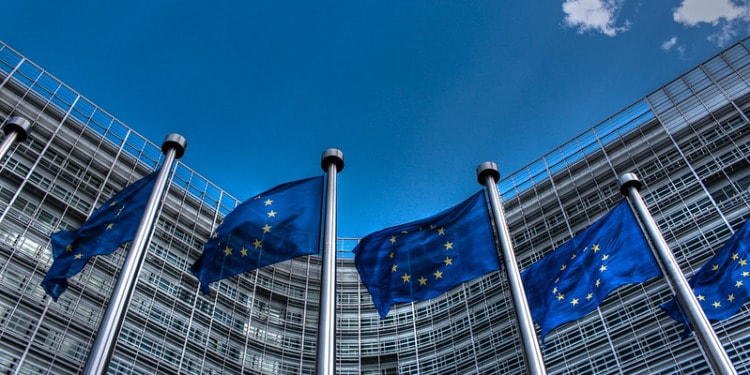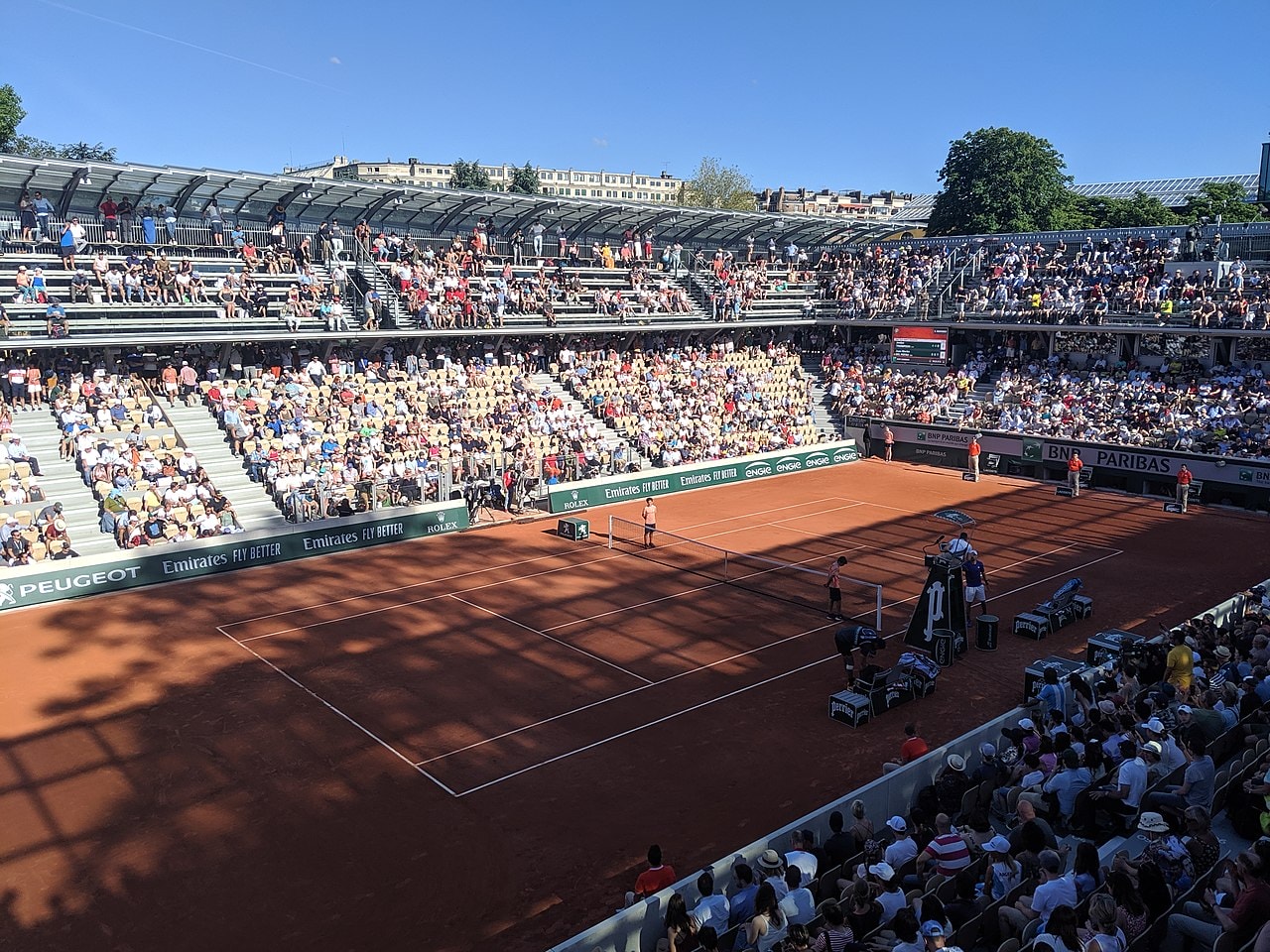In the not too distant future, the EU will face a series of significant geopolitical choices that will affect European citizens and the leaders that they support, says a new poll and subsequent paper from the European Council on Foreign Relations (ECFR).
European governments will have to decide their future relationships with three major global powers: United States, China and Russia.
The EU Council poll asked citizens in EU member states whether or not they support the USA in its competition with China, whether or not China should be punished for its cooperation with Russia, and whether or not to rebuild relationships with Russia after the war.
In 2021, Europeans “preferred to cultivate strategic partnerships with various countries and advocated a largely values-based foreign policy,” according to ECFR. However, the 2023 poll found that the rise in military hostility between the US and China, Russia’s invasion, and the subsequent disruption of global supply chains have undermined this “cooperative mindset.”
So what do different European countries now believe should be done with these relationships?
Holding China at arm’s length
According to the ECFR’s paper, French President Emmanuel Macron and President of the European Commission Ursula von der Leyen are “at opposite ends of the spectrum” when it comes to Europe’s relationship with China.
In a speech made in March 2023, just a week after Chinese President Xi Jingping began his third term as the president of the Chinese Communist Party, von der Leyen acknowledged that Europe’s relationship with China “is one of the most intricate and important anywhere in the world.”
“And how we manage it will be a determining factor for our future economic prosperity and national security,” von der Leyen said in March.
In their paper, ECFR explain that von der Leyen believes “Beijing is striving for security and control instead of reform and opening, and is aiming to systemically change the international order, making China less dependent on the world and the world more dependent on China” With that, the ECFR say that von der Leyen’s strategy of “de-risking” the relationship with China means that she’s pushing for the nature of the relationship to be “revisited.”
Macron, the report says, has avoided the subject of Taiwan when speaking about China and has made it clear that Paris wants an economic relationship with Beijing “even if China does not oppose Russia’s invasion of Ukraine.” Macron has even suggested that China could be helpful in resolving conflict in Europe.
From the results of the poll, people in Europe tend to agree more with Macron than von der Leyen. The majority, 43%, see China as “a necessary partner – with which we must strategically cooperate.” Only Germany, France, Sweden and Denmark have the prevalent mindset that China is a “rival” or “adversary.” This, as the report notes, was also the case in 2021, before Russia invaded Ukraine.
On average, 70% of respondents believed Russia and China to be partners but this was not a reason to cut ties with China as only 22% found there to be more risks than benefits in Europe’s economic relationship with China. However, in the event that China supplies Russia with weapons, the poll found that 41% would be willing to see sanctions imposed on China even if that damaged Western economies.
Will relationships with Russia be repaired?
ECFR’s paper says that, “with the exception of the Hungarian leadership, European governments have been strongly united in their support for Ukraine and their opposition to Russia.”
In the poll results, over half (55%) of European citizens surveyed said they view Russia as “an adversary – with which we are in conflict.” Poland, Sweden, Denmark, the Netherlands and Germany feel this way most strongly whereas Bulgaria and Poland still identify Russia as a “partner” or “ally.”
According to the ECFR, there is also a mandate in Europe for a “policy that seeks to establish European security not with Russia but against it.”
In Italy, nearly a quarter of the population still sees Russia as an ally, which the paper says calls into question the Italian government’s support of Ukraine. In 2021, only 21% of Italians saw Russia as an adversary but now this number has grown to 56%; other European capitals, says the ECFR, worry that Italy could again support Russia if the situation was different – for example if Donald Trump is elected as US president in 2024 or if other European countries criticise the EU’s strong anti-Russia stance.
Europe is likely to be split on how to treat Russia after the war. As the paper notes, Germany and France are likely to resume their pre-war relationship with Russia.
Related articles: Ukraine Crisis Redux: What Role for Europe?, Ukraine War: Why Is Russia Asking China for Military Aid?, Can China’s Rise To Power Be Peaceful? Here Is What Political Theories Tell Us, Rising China vs. Dominant America: How Likely is a War?
Others are less likely to try and rebuild, the paper explains: the Polish prime minister has criticised European cooperation with Russia even before the war. Estonia’s prime minister is also not looking to rebuild relations. In a government press release, she said: “There’s no room for flirtation with the idea of resuming business as usual with Russia,” also asserting that “we should not believe in the goodwill of an outright aggressor and cold-blooded war criminal.”
Among the populations of European countries, the poll shows that over 50% of respondents in each country think that their country should have a working relationship with a post-war Russia. According to the ECFR, “the prevailing view is that Europe should pursue a limited relationship with Russia, for example only trading in certain industries.”
American ally?
The ECFR say perceptions and attitudes towards America have changed dramatically since 2021 when not one EU member state saw the US as predominantly an “ally.” Now, in 2023, all countries identify the USA to be either a “partner” or an “ally” with this being the view of 75% of total respondents.
However, nearly the same percentage (74%) say Europe “cannot always rely on the US and needs its own defence capabilities.” Only 8% say the US will protect Europe completely, a slight increase from results in November 2020 when Trump was threatening to pull the USA from NATO.
In terms of benefitting from the relationship, 47% of Europeans think that a relationship with the US has more benefits than risks whilst only 15% think otherwise.
There is also a majority agreement (56%) in Europe that the relationship with the US would be “much weaker” or “slightly weaker” if Trump is re-elected. The report suggests that, “although [Europeans] might be supportive of investing in European defence capabilities, they are not convinced of the need to do so urgently or as a high priority.”
However the poll also found that, despite Europe’s closeness and overall positive perception of the US, Europeans do not support the US against China when it comes to Taiwan. On average, 62% believe Europe should “remain neutral,” whilst only 24% want to support the US. It can also be seen that some countries, such as Poland and the Netherlands, who view America most strongly as a partner, are the most enthusiastic when it comes to supporting the US against China.
What the public wants
Primarily, the poll shows that Europeans want to have a bigger voice when it comes to foreign policy with 60% answering that their country’s government listens to them “too little” and would like to see evidence of their thoughts being taken seriously.
The latest Eurobarometer survey asked over 27,000 people what they think of the EU and next year's European elections.
Check the results here ↓
— European Parliament (@Europarl_EN) June 6, 2023
The ECFR reports that Europeans base their opinions concerning foreign policy “on current circumstances, rather than possible future scenarios, which could cause abrupt changes to the status quo.”
This can be seen in the poll as 61% think it is unlikely Trump will be re-elected in the next two years, 53% do not think China and the US will enter direct military confrontation in the same timespan, and 45% think it unlikely that Ukraine will win the war against Russia in the next two years.
The paper says that, despite the people’s opinions, “if European leaders were to base their actions on the expectations of the public, they would fail to prepare for highly disruptive scenarios – with potentially devastating consequences for European security.” Instead, leaders should “enter into an active conversation” with their populations to prepare them for different geopolitical scenarios.
The European public, according to the report, still demonstrates a values-based approach to foreign policy – the war in Ukraine since the ECFR last did this poll has not disillusioned them. The largest group when consulted on the role of the EU answered that it should be a “beacon of democracy and human rights.”
The report says that the proportions of Europeans who think Europe should be a major global power has grown but that there is still a much larger emphasis on values. This means that when European leaders adapt their policies to more competitive geopolitics, “they should not simply parrot other great powers.”
The ECRF says that, when pushing for European power, the persuasive soft power of Europe must come across as hard power, or military strength, rather than values-based idealism.
Editor’s Note: The opinions expressed here by the authors are their own, not those of Impakter.com — In the Featured Photo: EU flags outside the Berlaymont Building, Brussels. Featured Photo Credit: Flickr.









